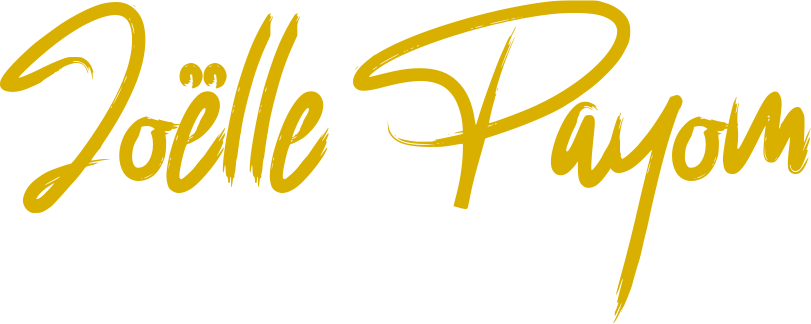Today, I’d like to invite you to reflect on the notion of authenticity and the alignment between our words and our actions.
Recently, I had the opportunity to publish a column in Le Temps, with a deliberately provocative title: Inclusion in the Workplace: Genuine Commitment or Opportunism?
It takes the form of an open letter, written in response to an opinion piece published in January and co-signed by 61 CEOs from French-speaking Switzerland, in which they loudly proclaimed their commitment to diversity, equity, and inclusion.Faced with such a strong public stance, it felt only natural to reach out and invite them to join the voices already supporting the International Day Against Workplace Harassment and for Inclusion.
The responses were disappointing. Most of them never replied—a deafening silence that raises real questions about the sincerity of their commitments.
OPINION
Sixty-one business leaders signed a high-profile op-ed on diversity this past January. But when it comes to turning words into action… it’s a different story, observes Joëlle Payom, founder and president of Rezalliance, a Geneva-based nonprofit that promotes better practices in the workplace.
By Joëlle Payom, founder and president of Rezalliance Le Temps – April 29, 2025
Ah, the passionate statements from CEOs… This time, 61 executives came together to reaffirm their unwavering commitment to diversity, equity, and inclusion. A powerful declaration of intent. But an intention is just that—an intention. And between words and actions, there’s often a gulf.
When I came across their op-ed published in the Opinions section of Le Temps on January 28, 2025, I thought to myself: “At last! Leaders taking a stand and using their voices and influence for a meaningful cause!” Naïvely perhaps, I took the time to write a personal email to each of them on February 14, 2025 (check the message), inviting them to match words with action by supporting the International Day Against Harassment and for Inclusion in the World of Work, which will take place in Geneva on May 23.
This initiative, launched in 2022, is supported by a former President of the Swiss Confederation and two key figures from the French-speaking Swiss business world.
From 61 to 3
Of the 61 CEOs I contacted, guess how many replied? Thirteen. And how many agreed to take action? Three.
Three out of 61. That’s little. Too little. So little, in fact, that I decided to ask members of my network to guess how many replies I had received. Most responded with “zero” or “maybe one or two.” Proof, if it were needed, that these public stances often attract likes but inspire little real trust.
At a deeper level, of these 61 CEOs, how many actually understand the origins of DEI—diversity, equity, and inclusion? How many know that the concept, imported from the United States, was born from the civil rights movement, a struggle for equality and social justice? How many understand the meaning of “intersectionality” and the central role it plays in any serious DEI policy?
Because promoting inclusion is not just about good intentions—it’s about addressing the root causes of systemic exclusion. It requires understanding how discrimination interlocks and reinforces itself along lines of gender, ethnicity, social class, sexual orientation, religious belief, disability, or any other characteristic that makes someone who they are.
So, how many of those signatories took the time to educate themselves before co-signing the op-ed? I suspect very few.
Inclusion is about survival
Fortunately, there are still leaders who go beyond generic statements and surface-level pledges. To the three CEOs who pleasantly surprised me by responding, thank you. By supporting this day of awareness and concrete action initiated by Rezalliance, they demonstrate integrity and remind us that alignment between values and action is both rare and precious.
These leaders—and others—will join us for the 2025 edition of the International Day Against Workplace Harassment and for Inclusion, organized in partnership with the Geneva Federation of Enterprises (FER Genève). The event is open to the public upon registration.
Inclusion is not a “nice-to-have” or a branding exercise—it’s a matter of health, economics, and fundamental rights. It’s not a “game” or about “ego”; it’s a question of survival for the human beings affected by exclusion in the workplace and beyond.
If the commitment of those three leaders shows anything, it’s that progress is possible when there is real will. Just imagine the impact if the other 58 were to turn their words into action. That wouldn’t be just another op-ed—it would be a true transformation of the world of work.
Words only matter when they’re followed by action. Let’s act accordingly.
Now that I’ve written this, I find myself sitting with a bench of unanswered questions.
When the applause fades and the statements are filed away, what remains of the promise to build inclusive workplaces? How many leaders are ready to face the uncomfortable truths that real inclusion demands? And I can’t help but wonder: how can we collectively hold employers accountable and ensure their commitment to inclusion is measured not by what they say, but by what they do?
Any thoughts?
Rezalliance is an independent nonprofit organization based in Geneva, dedicated to helping workplaces prevent harassment and foster diversity and inclusion. We initiated the International Day Against Harassment and for Inclusion in the Workplace to promote lasting cultural change, embedding care, equity, and respect into organizational practices.

